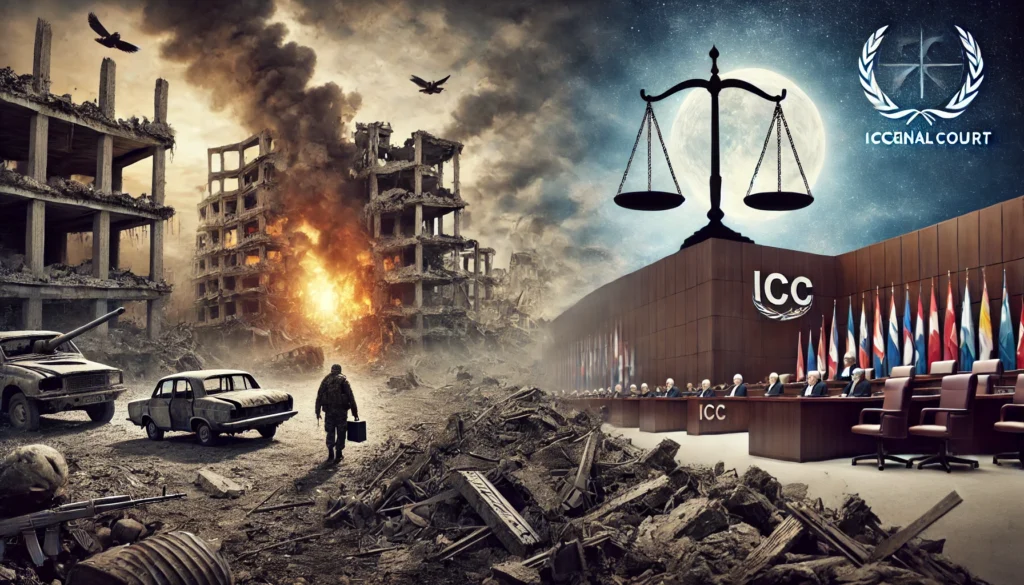Published on: 7th Novemeber 2024
Authored by: Viswa ganesh K
Dr. Ambedkar Law University School Of Excellence In Law
Introduction
Israel, originally part of the territory of Palestine, declared its independence and applied for membership in the United Nations. Israeli military actions displaced Palestinian people, allocating land to Israeli settlers. This action directly violates the Palestinian people’s right to self-determination as set forth in the UN Charter.
Prior to the partition plan, Palestine was part of the Ottoman Empire until the end of World War I. Under the League of Nations’ Class “A” mandate, the territory was entrusted to Great Britain with the intent that Palestine would eventually gain independence and self-administration. In Resolution 181(II), the UN General Assembly proposed to establish Jerusalem as a separate entity, facilitating the future recognition of a Palestinian state. The Anglo-Transjordanian Treaty delineated the territorial boundaries of Mandatory Palestine, and the UK subsequently withdrew from its administrative control.
The UN Security Council has since adopted resolutions advocating for two democratic states to coexist peacefully, in compliance with international law. However, since 1967, Israel has occupied Palestinian territories, creating a persistent conflict with no clear resolution in sight.
Facts:
Since 1967, Israel has occupied the West Bank, East Jerusalem, and the Gaza Strip—collectively known as the “Occupied Palestinian Territory.” Through force and threat, Israel seized these territories, implementing laws to displace Palestinian people. This action denies Palestinians their right to self-determination and violates human rights by exploiting natural resources, disrupting livelihoods, and impeding daily life. While Israel withdrew its settlements from the Gaza Strip in 2005, settlements in the West Bank and East Jerusalem persist. The Israeli occupation has caused significant harm to the principles of international humanitarian law.
Israel’s settlement activity in occupied territories violates international law, as it imposes discriminatory legislation and demolishes Palestinian property. In response, the UN and other states have refrained from recognizing Israel’s sovereignty over these territories, emphasizing the Palestinian right to self-determination. The UN has also sought an advisory opinion from the International Court of Justice (ICJ) on the legal consequences of Israel’s policies and practices in the occupied territories.
Issues:
1. What are the legal consequences arising from Israel’s ongoing violation of the Palestinian people’s right to self-determination, its prolonged occupation, and annexation of Palestinian territory since 1967, including measures aimed at altering the demographic composition, character, and status of Jerusalem, and its adoption of discriminatory legislation?
2. How do Israel’s policies and practices affect the legal status of the occupation, and what are the resulting legal consequences for all states and the United Nations?
Jurisdiction:
The UN General Assembly submitted these questions to the ICJ for an advisory opinion. Under Article 96 of the UN Charter and Article 65(1) of the ICJ Statute, the Court has jurisdiction to provide an advisory opinion.
Applicable Law:
In considering the issues raised by the General Assembly, the relevant legal frameworks include the UN Charter, international humanitarian law, international human rights law, and pertinent resolutions from the Security Council, General Assembly, and Human Rights Council, as well as the ICJ’s 2004 advisory opinion on the wall in the Occupied Palestinian Territory.
Rationale:
The Court emphasized that Israel’s prolonged occupation of Palestinian territories violates international law, undermining its responsibility to protect the welfare of occupied populations. The ICJ found that Israel’s policies and practices breach international legal obligations and harm the state’s international standing.
The Court also noted that Israel’s continued occupation and discriminatory measures are illegal, and it addressed the legal consequences for Israel, other states, and the United Nations.
Analysis:
The ICJ analyzed the implications of Israel’s occupation on various fronts, including its impact on Israel itself, other states, and the United Nations.
– Legal Consequences for Israel:
Israel’s occupation and settlement activities have damaged its standing in the international community and violated its responsibilities toward other states. This military occupation has inflicted great suffering on Palestinians, leading to property destruction, resource exploitation, and restricted freedoms.
Israel is obligated to provide reparations to Palestinians, including restitution, compensation, and satisfaction for damages suffered. Given the duration of the occupation since 1967, monetary compensation may be the most feasible option.
– Legal Consequences for Other States:
The principle of *erga omnes* obligations applies here, meaning that states have obligations toward the global community, as emphasized in the *Barcelona Traction* case. Israel’s occupation violates these obligations, particularly in relation to respecting Palestinian rights, prohibiting force, and adhering to humanitarian and human rights law.
In response, the UN General Assembly and Security Council have called on member states not to recognize Israel’s occupation as lawful and to avoid any support for Israeli actions in the occupied territories. The goal is to support Palestinian self-determination and to maintain global peace.
– Legal Consequences for the United Nations:
The UN General Assembly and Security Council passed resolutions declaring Israel’s occupation unlawful and urging member states not to recognize it. The UN has also consulted the ICJ’s advisory opinion to draft strategies aimed at ending Israeli military presence in occupied Palestinian territories.
Opinion:
Israel’s actions in Palestine represent a gross violation of international law and human rights. These policies aim to alter the demographic makeup of the territories and displace Palestinians. The destruction of Palestinian property and livelihoods is inhumane, and Israel must withdraw its forces to protect the remaining Palestinian population.
The ICJ’s advisory opinion in the *Wall* case underscores the urgent need for a peaceful resolution to the Israel-Palestine conflict. Implementing ICJ recommendations and Security Council resolutions could bring sustainable peace and restore international order. States should refrain from supporting Israel’s occupation, encouraging instead a voluntary withdrawal.
Israel must also compensate Palestinians for their losses; given the prolonged nature of the occupation, monetary reparations may be the most practical form of compensation.
Conclusion:
The ICJ’s advisory opinion underscored the importance of *erga omnes* obligations, highlighting the need for cooperative relations between states. Member states should act with humanity, avoiding purely national interests in favor of a collaborative global response.
Israel should adhere to international law, treaties, and conventions, respecting the sovereignty and rights of Palestinian people. The UN’s prompt request for an advisory opinion demonstrates its commitment to maintaining peace. Converting the advisory opinion into a binding resolution, with member states’ support, could provide a framework for resolving this protracted conflict and promoting global stability.
References:
1. [International Court of Justice](https://www.icj-cij.org)
2. [United Nations](https://www.un.org)



